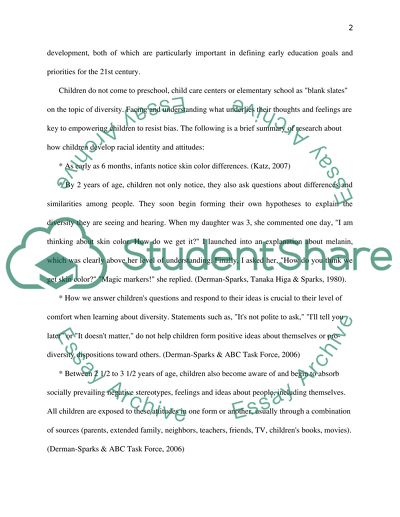Cite this document
(“Culture Diversity in Children's Development Essay”, n.d.)
Culture Diversity in Children's Development Essay. Retrieved from https://studentshare.org/social-science/1503221-culture-nd-diversity-in-childrens-develpment
Culture Diversity in Children's Development Essay. Retrieved from https://studentshare.org/social-science/1503221-culture-nd-diversity-in-childrens-develpment
(Culture Diversity in Children'S Development Essay)
Culture Diversity in Children'S Development Essay. https://studentshare.org/social-science/1503221-culture-nd-diversity-in-childrens-develpment.
Culture Diversity in Children'S Development Essay. https://studentshare.org/social-science/1503221-culture-nd-diversity-in-childrens-develpment.
“Culture Diversity in Children'S Development Essay”, n.d. https://studentshare.org/social-science/1503221-culture-nd-diversity-in-childrens-develpment.


